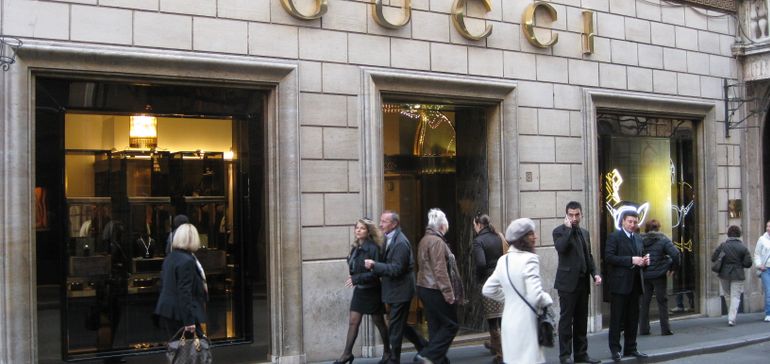The adoption of ApeCoin — the token for the Bored Ape Yacht Club non-fungible tokens collection — comes as brands dive further into cryptocurrency and NFTs. In addition to Gucci, Balenciaga, PacSun, Tag Heuer and Alo Yoga have each begun accepting cryptocurrencies.
“We added ApeCoin and Euro Coin because customers of our luxury merchant partners asked for it,” Stephen Pair, BitPay CEO, said in a statement. “They asked, and we delivered.”
Whether retailers’ experiments with the cryptocurrency industry will yield long-term gains remains to be seen. Brands and retailers like Tiffany, Lowe’s and American Eagle have also introduced NFT collections. But while GameStop in May announced the beta launch of its digital wallet for cryptocurrencies and NFTs, Ars Technica reported that the retailer’s NFT trading volume showed signs of slowing down.
And as Gucci and other brands begin accepting cryptocurrency for payments, research indicates that few consumers use these digital tokens for their purchases, and overall interest in the industry may be on the decline. A May report from the Federal Reserve said that 3% of adults used cryptocurrency to make purchases or transfer funds. Meanwhile, a March S&P report found that 19% of cryptocurrency users have paid for purchases with cryptocurrencies. Plus, a Bank of America analysis of anonymized consumer data found that the number of active cryptocurrency users dropped from more than 1 million in November 2021 to less than 500,000 in May 2022.
Though consumers can use ApeCoin at Gucci to pay for goods, the token is now at the center of a new fraud lawsuit. Decrypt reports that the law firm Scott+Scott has filed a class action lawsuit alleging that Yuga Labs, which oversees the Bored Ape Yacht Club NFT project, falsely marketed Bored Ape NFTs and ApeCoin tokens as having the potential to generate future returns, but the value of the tokens has severely declined in the past few months.
Get the free daily newsletter read by industry experts
Topics covered: retail tech, e-commerce, in-store operations, marketing, and more.
The pandemic upended some trends and dramatically accelerated others to further disrupt the flow of goods from manufacturers to retailers to consumers.
As category players extend lead times and amass inventory to manage delays, they're also building sourcing relationships beyond China and Vietnam.
Subscribe to Retail Dive for top news, trends & analysis
Topics covered: retail tech, e-commerce, in-store operations, marketing, and more.
Get the free daily newsletter read by industry experts
Topics covered: retail tech, e-commerce, in-store operations, marketing, and more.
The pandemic upended some trends and dramatically accelerated others to further disrupt the flow of goods from manufacturers to retailers to consumers.
As category players extend lead times and amass inventory to manage delays, they're also building sourcing relationships beyond China and Vietnam.
The free newsletter covering the top industry headlines
Topics covered: retail tech, e-commerce, in-store operations, marketing, and more.
Author
Administraroot


